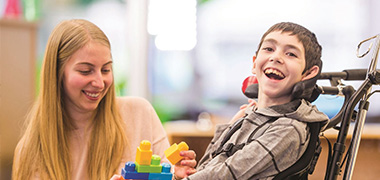
This role has a moderate level of AI exposure. AI can enhance efficiency for some tasks, but this job still relies on human skills and decision-making.
Explore all careersA Home Carer supports people with additional needs at home, assisting with daily tasks, personal care, and accompanying clients to appointments.
Get qualified to work as a Home Carer with a course recognised across Australia. Speak to a training provider to learn more.
Browse occupations related to Home Carer
In Australia, a full time Home Carer generally earns $1,190 per week ($61,880 annual salary) before tax. This is a median figure for full-time employees and should be considered a guide only. As you gain more experience you can expect a potentially higher salary than people who are new to the industry.
 Courses.com.au Team
Courses.com.au Team
Employment numbers in this industry are expected to grow strongly in coming years. There are currently 288,200 people working in this field in Australia and many of them specialise as a Home Carer. Home Carers may find work across all regions of Australia.
Source: Australian Government Labour Market Insights
 Courses.com.au Team
Courses.com.au Team
A Certificate III in Individual Support is an ideal qualification if you’re planning a career as a Home Carer. This course will give you the skills to support elderly people, people with a disability or other vulnerable clients. You’ll cover topics including communication, ethics, interpersonal skills and personal safety. Other suitable qualifications include a Certificate III in Individual Support (Disability), Certificate III in Individual Support (Ageing), Certificate III in Individual Support (Ageing, Home and Community) or Certificate III in Individual Support (Home and Community Care).
 Courses.com.au Team
Courses.com.au Team



A Home Carer provides support to people with additional needs in their own home. You might work with elderly people or people with a disability. Home Carers might provide assistance with daily living tasks such as cooking or cleaning or provide help with personal care duties such as dressing or showering. You may also accompany clients to appointments or community activities.
Home Carers should have strong personal skills and be able to communicate with people with a range of needs. It’s important that you are patient and can understand your clients’ individual needs. Home Carers should be flexible and be willing to take on a range of tasks. Depending on the needs of your clients, you may have to do some physical work or heavy lifting.